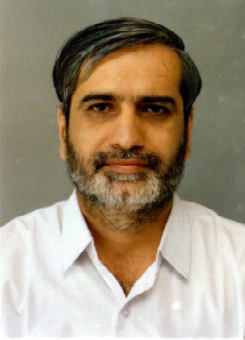 GST – Goods and Services Tax – which will be a single destination based consumption tax – is all set to replace existing taxes, including CENVAT, Octroi, Sales Tax, and Excise Duty, etc. from July 1, 2017. According to the Empowered Committee of State Finance Ministers, constituted by the Government of India: “GST is a tax on goods and services with comprehensive and continuous chain of set-off benefits from the producer’s point and service provider’s point up to the retailer’s level. It is essentially a tax only on value addition at each stage, and a supplier at each stage is permitted to set-off, through a tax credit mechanism, the GST paid on the purchase of goods and services as available for set-off on the GST to be paid on the supply of goods and services. The final consumer will thus bear only the GST charged by the last dealer in the supply chain, with set-off benefits at all the previous stages.”
GST – Goods and Services Tax – which will be a single destination based consumption tax – is all set to replace existing taxes, including CENVAT, Octroi, Sales Tax, and Excise Duty, etc. from July 1, 2017. According to the Empowered Committee of State Finance Ministers, constituted by the Government of India: “GST is a tax on goods and services with comprehensive and continuous chain of set-off benefits from the producer’s point and service provider’s point up to the retailer’s level. It is essentially a tax only on value addition at each stage, and a supplier at each stage is permitted to set-off, through a tax credit mechanism, the GST paid on the purchase of goods and services as available for set-off on the GST to be paid on the supply of goods and services. The final consumer will thus bear only the GST charged by the last dealer in the supply chain, with set-off benefits at all the previous stages.”
The Committee acknowledges that “the present forms of CENVAT and State VAT have remained incomplete in removing fully the cascading burden of taxes already paid at earlier stages. Besides, there are several other taxes, which both the Central Government and the State Government levy on production, manufacture and distributive trade, where no set-off is available in the form of input tax credit. These taxes add to the cost of goods and services through “tax on tax” which the final consumer has to bear. Since, with the introduction of GST, all the cascading effects of CENVAT and service tax would be removed with a continuous chain of set-off from the producer’s point to the retailer’s point, other major Central and State taxes would be subsumed in GST and CST will also be phased out, the final net burden of tax on goods, under GST would, in general, fall.
There are two types of GST. CGST: Central Goods and Services Tax, paid on all transactions, collected by the Center and SGST: State Goods and Services Tax, paid on all transactions within a State, collected by the States. While the location of the supplier and the recipient within the country is immaterial for the purpose of CGST, SGST would be chargeable only when the supplier and the recipient are both located within the State. Each taxpayer would be allotted a PANlinked taxpayer identification number in line with the prevailing PAN-based system for Income tax facilitating data exchange and taxpayer compliance. GST will be managed through the GST Network, GSTN – http://gstn.org/. All taxes will be paid online and there will be no manual filing of returns. Post generation of challan online, you can pay GST by Debit/credit card, Internet Banking, through NEFT/RTGS or cash/cheque. Cash payments will be first deposited in the Cash Ledger. Payment can also be debited from the Credit Ledger.
After Demonetization, the introduction of the GST is the biggest step being taken by the present government and, if newspaper reports are any indication, there is a tremendous amount of uncertainties, confusion and anxiety being felt by the business community. The large corporations are able to afford expensive consultants and legal experts to overcome their difficulties, but the SME sector and also the traders’ community is in for a big change in their working style and system. The IT systems in place by the government and also the internet services/IT infrastructure available in the Digital India would all face the biggest stress test of their lives. Most fears emerge from the thought that the results of this test may not be up to the mark for at least quite a few months till the real-time optimization of all the stakeholders’ competencies takes place. Hope the government has learnt the lesson from the DeMo and is able to avoid the second big disruption in the country’s business world. For ensuring this they can even postpone the GST implementation for another six months to be doubly sure of the smooth transition. It is important that all stakeholders know fully well the GST, and not merely its ghost!
G.D. JASUJA
Managing Editor





